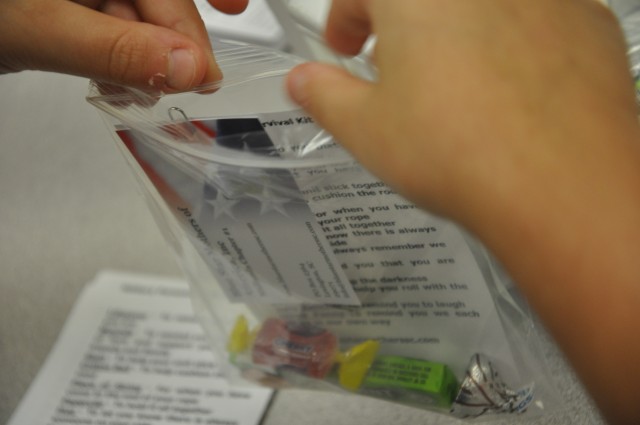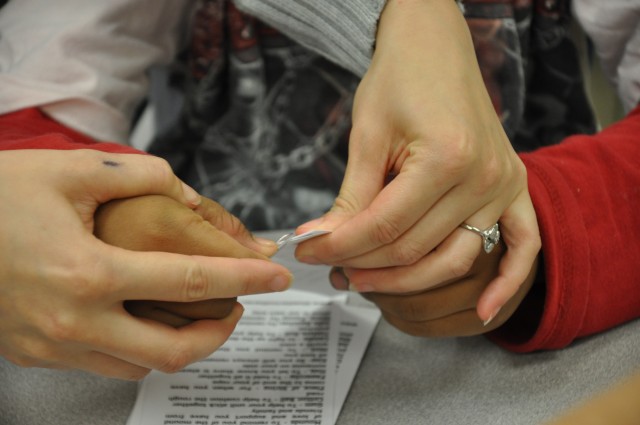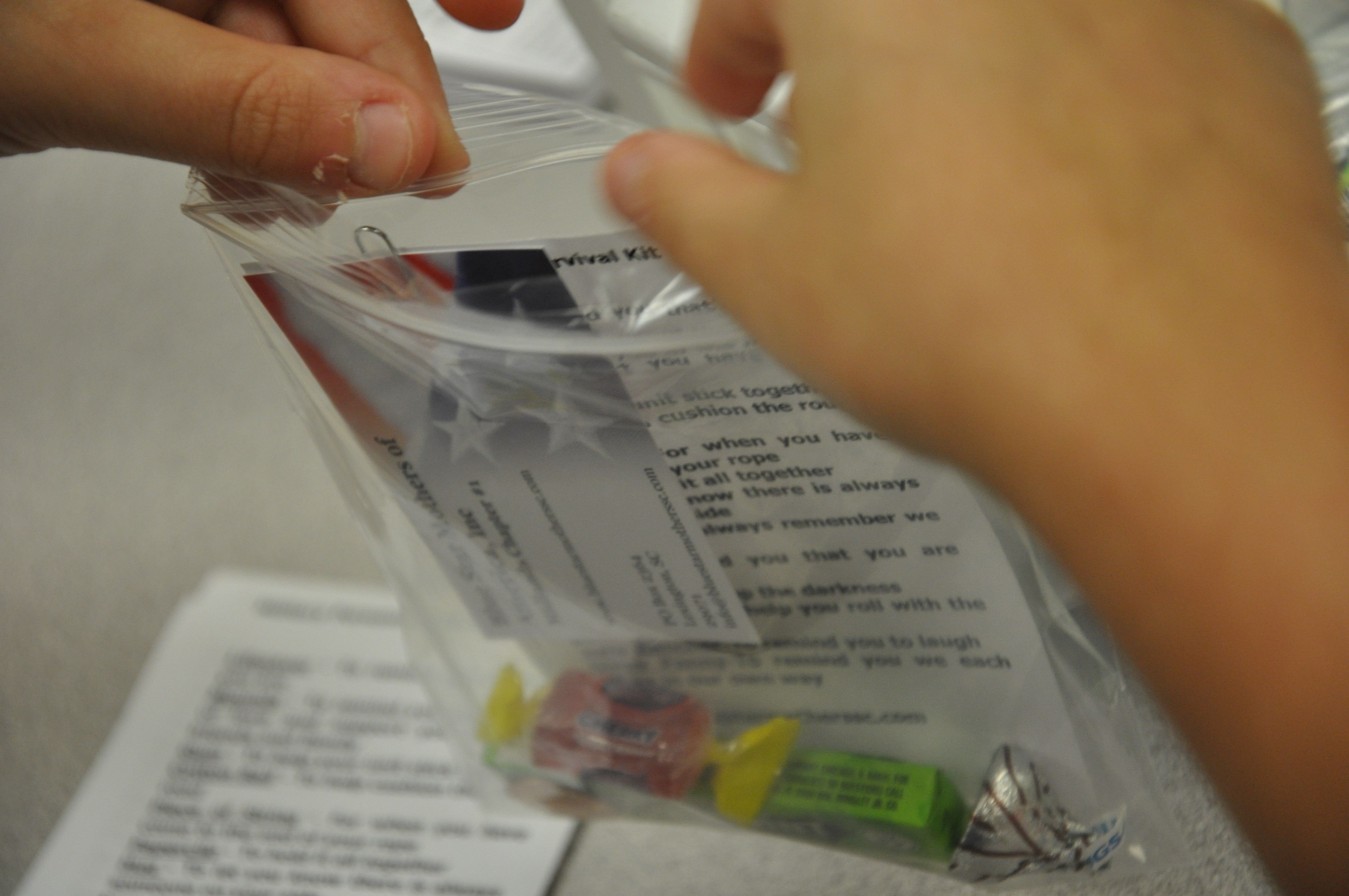FORT JACKSON, S.C. -- Some special people have a special message for service members deploying downrange.
"You're not forgotten, we love you and we're always thinking of you."
That's the message a team of special education teachers and students at Fort Jackson hope to convey in every Military Personnel Survival Kit they package for Task Force Marshall service members deploying.
The kits, sandwich-sized baggies filled with candies and other small items, are prepared by special education students at C.C. Pinckney Elementary School and delivered to Soldiers, Sailors and Airmen before they deploy.
Dena Jordan, speech pathologist for Pierce Terrace Elementary School and member of the Blue Star Mothers of America Inc. Midlands Chapter 1, spearheads the program.
"Service members fly into South Carolina from all over the country before going overseas," Jordan said. "They come here to train and then leave directly from here. Very few family members come to see them off. So the Columbia community says goodbye to them. ... We shake their hands, tell them we'll be thinking about them and give them a kit before they get on the plane."
Prior to last summer, the Blue Star Mothers had been putting together the kits themselves, Jordan said. But while working with the special education students in C.C. Pinckney's extended school year program, Jordan said she realized the students needed a work task to help increase their attention spans and to teach them how to do something quickly and accurately as in any work environment.
She said she thought having the students put together the kits would not only provide an opportunity for them to show their support for service members, but would also give them the chance to learn real-life vocational skills.
So in August, Jordan coordinated with the school's special education teacher to have the students work in an assembly line setting where they man different stations, filling baggies with candies and other small items donated by the Blue Star Mothers.
Each item has a symbolic meaning. For example, a cotton ball is included "to help cushion the rough road" and a shiny penny is included to remind the service members they each shine in their own ways.
Each student is assigned a specific item to place in the kits based on his or her ability level.
"It's really based on the uniqueness of their abilities," said the special education teacher, who is not named in order to protect students' confidentiality.
Some children may have a difficult time opening candy bags or sealing the baggies, while other students can become fixated on certain colors, the teacher said.
"We've found that some students do better with items of one color or one size, whereas other students may be OK working with candies that vary in color," she said.
The teachers then monitor the children, watching to see who needs to switch activities at any given time.
"We can tell if the colors of the candy might be too taxing for a student, or if a task is too challenging, so we'll move them to another candy or item," she said.
All of the students eventually learn to perform the most difficult task, paper clipping a Blue Star Mothers business card to a sheet listing the contents of each bag along with what each item symbolizes.
"Putting the kits together allows the students to apply the skills they've learned for sorting, assembling and packaging to a real-life situation," the teacher said. "Learning how to manipulate a paper clip helps improve their fine motor skills."
As the students put together the kits, they listen to fast music, which helps them keep a rhythm. The best thing about the program is that the students can work for more than 15 minutes at a time, the special education teacher said.
"Other teachers might say, 'Well, they can't sit still for more than five minutes.' I say they can because we have witnessed it," she said. "Some are working for 20 minutes before they take a break, some maybe up to 30 minutes and a break. We've gone up to as much as an hour with this and they've not needed a break. They've been asked, but they've refused."
One key to the program's success is that the students know that the kits are going to service members.
"The students' moms or dads are Soldiers," she said. "They understand these (kits) go out to Soldiers. All children will do what is meaningful to them."
The special education teacher said the parents of the students seem delighted with the program.
One parent said she thinks the kit-making program is a great addition to the special education curriculum.
"Not only does it help the kids with their fine motor skills, but I think it also makes them feel confident because they are doing an act of kindness for our deployed troops," she said.




Social Sharing